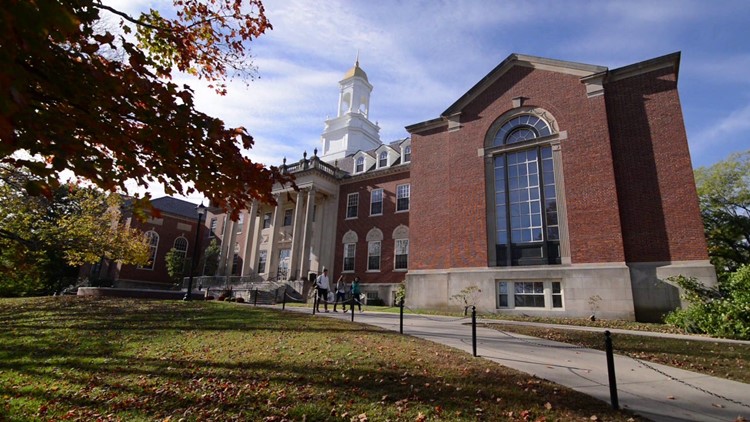STORRS — Milmaglyn Morales does not consider herself an actress, but when she steps in front of a theater audience her hands, facial expressions and body movements are key to helping people understand what is happening on stage.
Morales is an American Sign Language interpreter and one of several professional interpreters helping the Connecticut Repertory Theatre with its Nutmeg Summer Series.
The theater’s runs of the musicals “Mamma Mia!” and “Cabaret” will each include one performance with American Sign Language interpreters, on June 15 and July 13.
Two interpreters will stand just off stage right signing the dialogue and lyrics to a section of the audience where those with hearing loss will be sitting. Morales said the interpreters will try to communicate the emotions being conveyed in the words and music too.
“The facial expression is in effect the vocal tone,” said Morales, who is deaf, through another interpreter. “As long as that’s there, the deaf person will get the emotions.”
Many patrons with hearing loss will either use hearing aids or simply feel the beat and vibration to connect with the songs, she said.
“But, aside from music, that person watches the interpreters to get a sense of what the dialogue is and then they watch the action on the stage. It’s a very visual experience.”
Morales is also helping the theater put together a video message in sign language for the lobby that will explain things such as where the exits and the bathrooms are located.
UConn began providing ASL-interpreted performances in 2017 as a way to expand its audience at the request of Panagiota Capaldi, Connecticut Repertory Theatre’s company house manager.
The theater group sought guidance and experts through a partnership with UConn Interpreting Services, an office whose mission is to make the school more accessible to the deaf community. The theater had its first ASL interpreter at a performance of the musical “Shrek” in 2017.
“We had students who had never been able to come to the theater before and they were having such a great time,” said Audrey Silva, the director of UConn Interpreting Services. “Just to see that moment and what we could do was really special.”
With the tight budgets of UConn’s productions, Capaldi said, internal support was crucial to bringing interpreters on board.
The interpreters can only be paid for 30 hours of work and don’t get to rehearse with the cast. Most of them have an hour drive just to get to the rural campus in eastern Connecticut.
They needed special permission from the Actor’s Equity Association to get recordings of rehearsals, which help them memorize the musical and understand the rhythms and timing of the actors.
Actress Jen Cody, who plays Rosie in “Mamma Mia!” said the cast has embraced the idea and does not find the interpreters distracting.
She said she usually forgets they are there until the curtain call when the deaf portion of the audience begins waving, the deaf equivalent of clapping, and the cast returns the gesture.
“It’s exhilarating to know that they’ve experienced this play and in a completely different way,” she said.
Morales said interpreted theater performances were almost unheard of 20 years ago. Now, students can specialize in theater interpretation as a career track at schools such as the Rochester Institute of Technology and Gallaudet University.
UConn recently approved ASL studies as a major, beginning in 2020, which will include a concentration in interpreting. Silva said the school hopes to eventually offer internships with her office, which could lead students to pursue careers in theater interpretation.
The next step, Morales said, is to train more interpreters who also are deaf and therefore can better understand what to convey to the audience. She said the ideal is to have a team of one deaf and one hearing interpreter at each show.
During her time, the theater has “gone from having absolutely no interpreters to having some, to now where we hope it’s becoming regularized,” Morales said. “My wish is that all theater performances someday will have an interpretive performance, with a deaf interpreter.”



